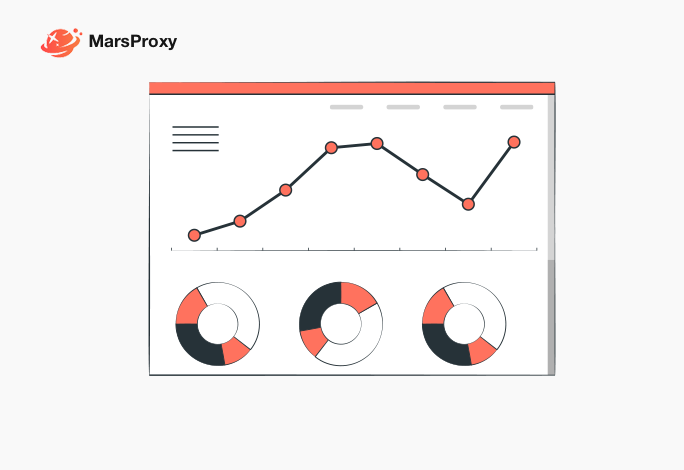 Mars proxy
Mars proxy
Proxies Services
Win Download

Short-acting IPs,100M+ real lPs worldwide
From: $0.77/GB

Static Residential Proxies
Long-term stable lPs, superior performance
From: $5/MONTH

Datacenter Proxies
Long-term stable lPs, cost-effective solution
From: $4.5/MONTH


The plan no expiration date and is charged by the number of IPs, with each IP usage time up to 24 hours
From: $0.045/IP

Rotating ISP Proxies
Static (lSP) Residential Proxies
From: $0.66/GB
High quality Proxies
Absolute lowest price
Download
Data collection

Market Ressarch
Analyze the market & gather infomationfrom each niche

Travel Aggregation
Compare prices and achieve thecompetitive advantage straight away

Social Media for Marketing
Dominate your industry space on socialmedia with smarter campaigns, anticipatethe next big trends

SERP & SEO
Optimize digital presence and caim yourplace on the ladder of success

Data Scraping
Use the power of web data to improve the world

Sneaker & Tickets
Improve your Sneakers retail game withoutlimitations or restrictions.

Sales & E-commerce
Collect pricing data on every productacross the web to get and maintain acompetitive advantage

Ad Tech
Protect your brand, verify ads. & conductreal-time ad intelligence for optimized data-driven campaigns

Residential (Socks5) Proxies 0 IPs
Rotating Residential flow 0 GB
Static (ISP) Residential Proxies 0 GB
Static Residential IP 0 IP
Datacenter Residential IP 0 IP
 IPMARS SOCKS5 IP : Free
IPMARS SOCKS5 IP : Free

 residential IPs: Secure, Fast and Perfect for your needs!
residential IPs: Secure, Fast and Perfect for your needs!








